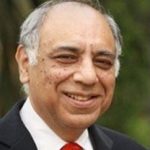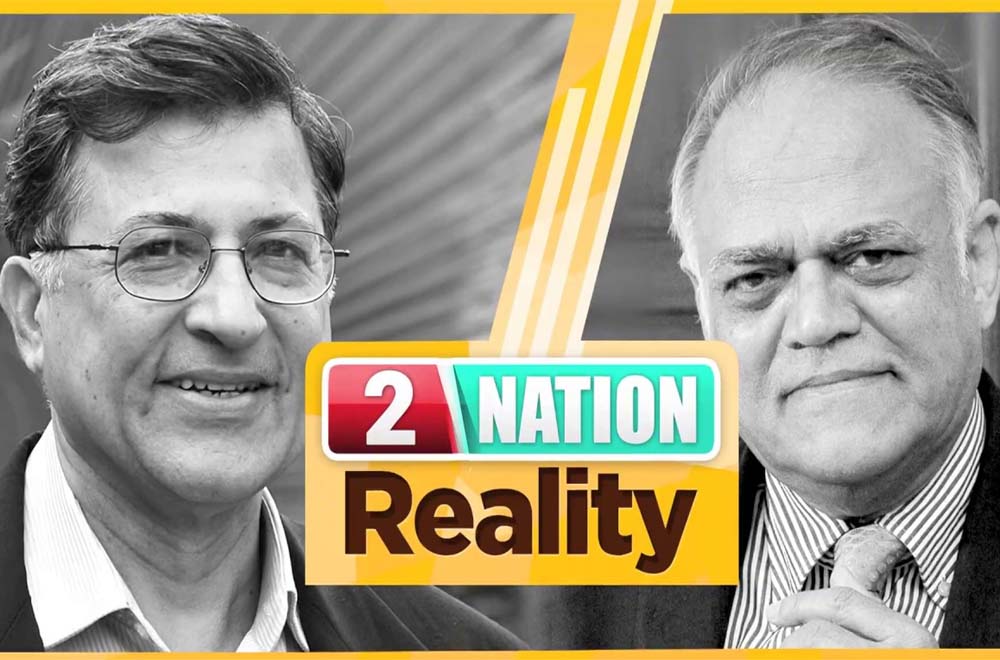Dr. Hoodbhoy suggests that ‘we need Pakistan built upon common interests of the people, and that the country was not made for armed forces’, while Mr. Jabbar justifying military’s role in civilian setup insists that ‘there has to be a balanced relationship.’
By Anjum Altaf
Pervez Hoodbhoy: What we need is a Pakistan that is built upon common interests of the people. Of the people of Pakistan which must include the Baloch, the Sindhis, the Pathans, the Punjabis, the Gilgitis, Baltistanis – Everyone. This is not a country which was made for the armed forces of Pakistan.
Javed Jabbar: You know to single out the armed forces which have played a major role in our history and sometimes that role has not been what the armed forces should have done. For example, coming in to the political sphere, the armed forces should not have done it. But that is part of our history. And in the political sphere, particularly after the 18th Amendment, we have enormous provincial autonomy, levels unprecedented in our history. So, therefore, the concept of participation through regular elections, through democracy, is now a part of the Pakistani political psyche and merely the existence of the army does not negate that. We are a very democratic people. Throughout the year there are elections for bar associations, teachers’ associations, doctors, architects, engineers, chambers of commerce, private clubs. People of Pakistan love democracy from the word go despite four military interventions. So we are coexisting between the army and the civil. There has to be a balanced relationship which I hope we will evolve in the years to come.
Analysis
Dr. Hoodbhoy has made two non-controversial statements: That Pakistan should be built on the common interests of its people and that the country was not made for the armed forces.
The first is something no can disagree with but note that is the expression of an ideology that Dr. Hoodbhoy espouses which negates his earlier claim that Pakistan does not need an ideology. What he is asserting here, albeit indirectly, is that Pakistan needs an ideology based on justice, fairness, and equal representation of all its citizens.
The second is factually correct since there is no record in the narrative of the Pakistan movement that can be cited to prove that the country was being created for its armed forces.
There were really no grounds nor need for Mr. Jabbar to disagree with either statement but he has felt obliged to do so. After conceding that the armed forces should not have played the role they did and interfered in the political sphere, he whitewashes it by saying that is part of our history. There are many things like genocides that are part of the history of nations but cannot be absolved for that reason.
(This is part of the series of articles, a detailed analysis of former Minister and Senator Javed Jabbar’s video he had released in response to a speech of Prof. Dr. Pervez Hoodbhoy at a literary festival in Karachi. The Preamble of the analysis can be read by clicking here. For rest of the rounds, click here.)
 The writer has PhD from Stanford University. He was a Dean at the Lahore University of Management Sciences (LUMS) and Provost at Habib University in Karachi.
The writer has PhD from Stanford University. He was a Dean at the Lahore University of Management Sciences (LUMS) and Provost at Habib University in Karachi.
 The writer has PhD from Stanford University. He was a Dean at the Lahore University of Management Sciences (LUMS) and Provost at Habib University in Karachi.
The writer has PhD from Stanford University. He was a Dean at the Lahore University of Management Sciences (LUMS) and Provost at Habib University in Karachi.

